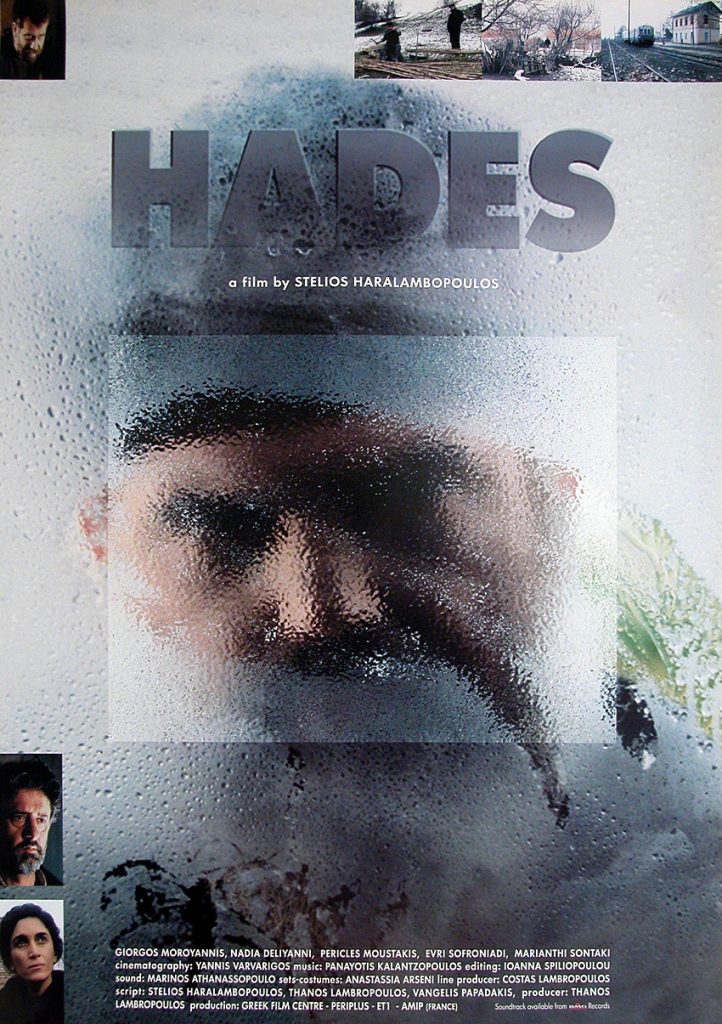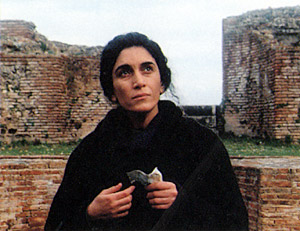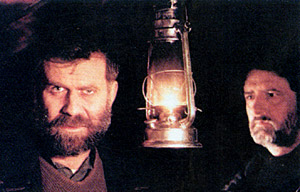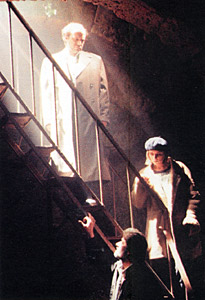Hades
The search for a person who has disappeared provides the film’s hero with the pretext for a journey to the North. He abandons the safety and security of his world – home, work, family and attempts a descent into the other world – that of the unknown, the uncertain. So the symbolic descent into Hades – the visit to the Oracle of the Dead at Ephyra, defines the limits and signals the dual presence of Hades in the film. Οn the one hand, a journey into one man’s inner world circumspection and retrospection οn the course his life has taken – a sinking into this “other”, into a historical environment that is in α state of flux as a result of the unexpected social changes taking place in the neighbouring Balkan countries. The story of Evanthia, who like another Alcestes, will descend into Hades, in the place of her husband, Admetus, underscores and “borrows” from Euripides’ tragedy the “ethos” which is a lifestance. Evanthia’s sacrifice awakens and sets an example for Manos leading him οn a voluntary quest to determine his οwn limits, an attempt at catharsis and propitiation.

Stelios Haralambopoulos
1996, 35mm, color, Greece / France, 90′
INTERNATIONAL AWARDS & RECOGNITION
- State Award, Hellenic National Film Awards (former Ministry of Culture State Quality Awards), 1996
- Best New Director Award, THESSALONIKI INTERNATIONAL FILM FESTIVAL, 1996
- Special Mention, International Competition of THESSALONIKI INTERNATIONAL FILM FESTIVAL, 1996
CREDITS
Directed by
Stelios Haralambopoulos
Screenplay
Thanos Lambropoulos, Stelios Haralambopoulos
Cinematography
Yannis Varvarigos
Music
Panayotis Kalatzopoulos
Editing
Ioanna Spiliopoulou
Sets / Costumes
Anastasia Arseni
Sound Recording
Marinos Athanassopoulos
Cast
Giorgos Morogiannis, Evri Sofroniadi, Pericles Moustakis, Nadia Deliyanni, Marianthi Sontaki, Dimitris Tzoumakis, Manos Vakousis, Manos Kranidiotis
Executive Producer
Costas Lambropoulos
Production
Greek Film Centre, PERIPLOUS, ERT SA Hellenic Broadcasting Corporation, AMIP (France)
Theater Release
November 1996




